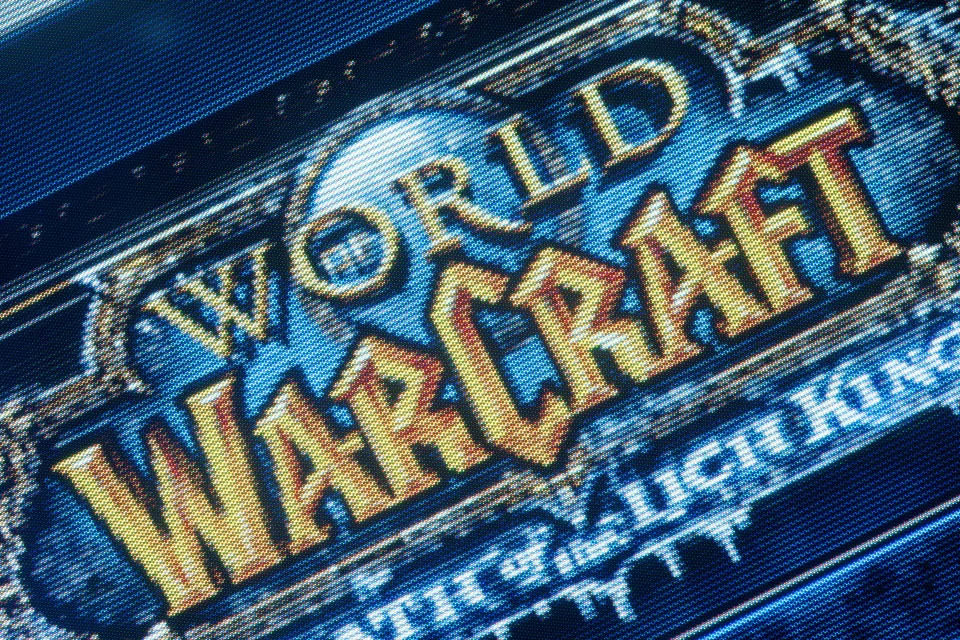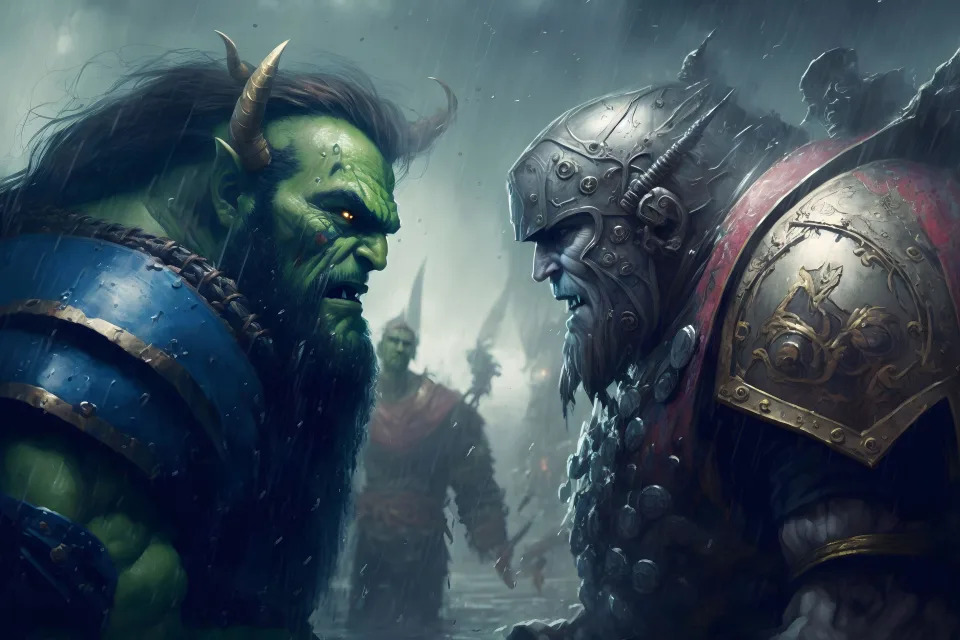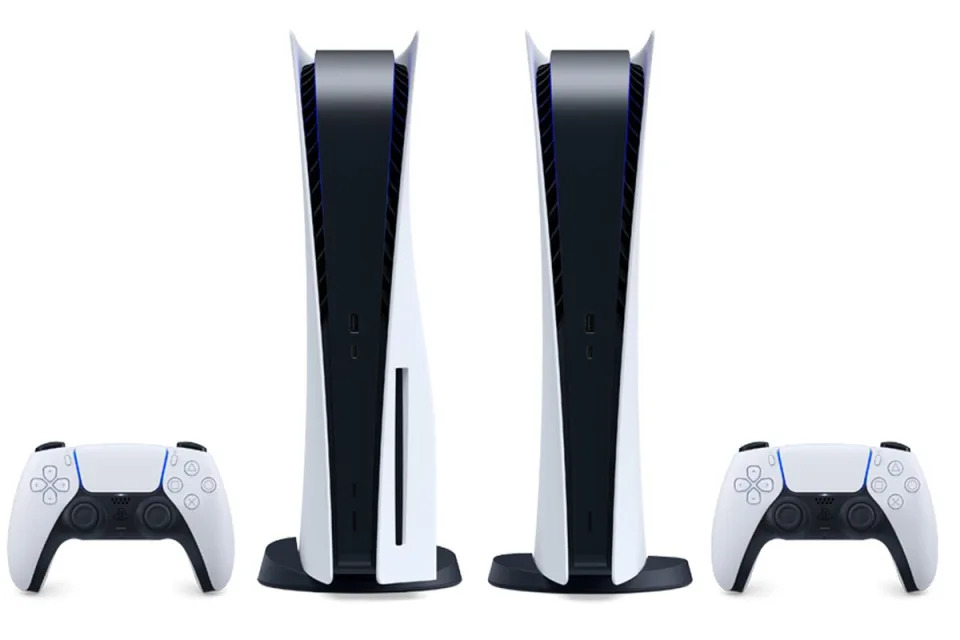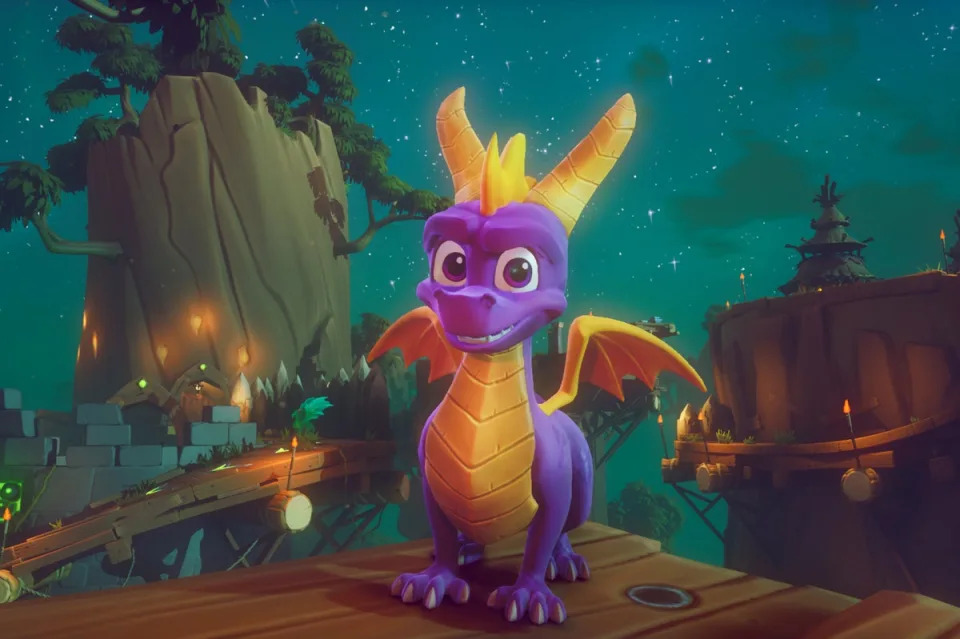with UK competition watchdog
August Graham, PA Business Reporter
Tue, 22 August 2023
The competition watchdog stressed “this is not a green light” as it agreed to look at a fresh proposal from Microsoft which the company hopes will allow its 69 billion US dollar (£54 billion) takeover of Activision Blizzard to go ahead.
The global technology giant said it has submitted a new version of the blocked deal, which will now be reviewed by the Competition and Markets Authority (CMA).
It came as the regulator confirmed on Tuesday that Microsoft’s original plan to buy the computer games company “cannot proceed”.
Under the new proposal, Microsoft would sell off its rights to offer games via the cloud for new or existing Activision PC or console games for the next 15 years outside the European Economic Area (EEA).
It will instead sell those rights to Ubisoft, a rival developer known for the Assassin’s Creed and Far Cry games series.
This is designed to ensure that gamers have access to Activision Blizzard’s games, even on consoles and computers not made by Microsoft.
The CMA will now launch a new probe into this deal, a so-called Phase 1 investigation.

World Of Warcraft became globally popular after it was released by Blizzard Entertainment in 2004 (Paul Carstairs/Alamy/AP)
CMA chief executive Sarah Cardell said: “The CMA has today confirmed that Microsoft’s acquisition of Activision, as originally proposed, cannot proceed.
“Separately, Microsoft has notified a new and restructured deal, which is substantially different from what was put on the table previously
“This is not a green light. We will carefully and objectively assess the details of the restructured deal and its impact on competition, including in light of third-party comments.”
Microsoft president Brad Smith said: “Under the restructured transaction, Microsoft will not be in a position either to release Activision Blizzard games exclusively on its own cloud streaming service, Xbox Cloud Gaming, or to exclusively control the licensing terms of Activision Blizzard games for rival services.”

The CMA locked horns with one of the world’s largest technology companies over the deal (Anna Ivanova/Alamy/PA)
It marks a new twist in the case, the biggest fight the CMA has taken on since gaining new post-Brexit powers. At one point the case looked like as though it would only end after a court battle.
In January 2022 Microsoft announced that it planned to buy Activision Blizzard, the company behind the Call Of Duty and World Of Warcraft games, for an eye-watering sum.
When the UK was still an EU member, a deal of that size would have been assessed by regulators in Brussels. But after Brexit the CMA now has the power to investigate such deals itself.
Although both companies are American, both have significant businesses in the UK so their tie-up could have a significant impact on competition here.
Activision Blizzard chief executive Bobby Kotick said: “For us, nothing substantially changes with the addition of this divestiture: our merger agreement with Microsoft, closing deadline, and the cash consideration to be paid for each Activision Blizzard share at closing remain the same.
“We will continue to work closely with Microsoft and the CMA throughout the remaining review process, and we are committed to help Microsoft clear any final hurdles as quickly as possible.
“This has been a longer journey than expected, and I am very proud of how focused everyone has remained on delivering great games.”
Why does Microsoft want to buy Activision Blizzard and will the deal go ahead?
Alan Martin and Vicky Jessop
Tue, 22 August 2023

Activision’s biggest game is Call of Duty (Activision Publishing Inc)
Microsoft announced its intention to buy Activision Blizzard in January 2022. The story has popped up countless times since as more roadblocks appeared, and were navigated around.
One key one remains: the UK’s Competitions and Markets Authority (CMA).
The acquisition has been given the green light by EU and US regulators, but the CMA is still holding out. Why?
Any acquisition this size is a big deal. Microsoft plans to buy Activision Blizzard for £54 billion. It is one of the biggest game publishers out there, and clearly of higher value than Skyrim creator Bethesda Softworks, which was acquired by Microsoft for around £6 billion in 2021.
The big story was initially around Call of Duty, and whether it would become an Xbox-only series. Microsoft has now promised to bring Call of Duty to Sony PlayStation and Nintendo consoles for the next decade.
However, that has not placated the CMA. Its concerns hinge on cloud streaming, used in Microsoft’s Xbox Game Pass service. It argues the merger will be bad for consumers and innovation, by giving Microsoft an unfair advantage in the area.
In a last ditch attempt to get the deal through, Microsoft submitted a fresh proposal on August 22.
It would see Microsoft offload game streaming rights for Activision Blizzard games to Ubisoft, for PC and console titles released over the next 15 years. Microsoft would no longer determine which streaming services get the publisher’s games, Ubisoft would.
But why is Microsoft so keen on buying Activision Blizzard in the first place?
What games does Activision Blizzard make?
The biggie is Call of Duty or ‘CoD’. The military first-person shooter is one of the most popular games on the planet, and always elicits excitement when a new entry is released.
Both Activision and Blizzard have been in the business for decades, long before they merged in 2013 after Activision acquired Vivendi Games. They have plenty of beloved franchises beyond CoD, including Warcraft, Overwatch, and even Candy Crush, after the 2016 acquisition of mobile game maker King.
Here are the main ones:
Activision
Call of Duty
Crash Bandicoot
Spyro
Tony Hawk’s Pro Skater
Prototype
Hero (Guitar Hero, DJ Hero, Band Hero)
Candy Crush
Blizzard
Warcraft
Diablo
Overwatch
Starcraft
Hearthstone
These are just the main players and there are plenty of long-forgotten IPs that could be revived: think King’s Quest, Blur, Gabriel Knight, True Crime, and Gun.
Why is Microsoft trying to buy Activision Blizzard?

Overwatch 2 (Activision Blizzard)
While once known exclusively for home-computer software (Windows, Office, Outlook, Word, etc.) Microsoft now has fingers in many pies — and gaming is one of the biggest, thanks to the Xbox gaming division.
That would be reason enough to try to add one of the world’s biggest publishers into the fold, with exclusive games often helping decide console wars, and Microsoft currently fighting a losing battle against Sony’s PlayStation 5.
But having popular franchises such as Call of Duty, Overwatch, and Warcraft as part of the Microsoft stable is especially significant due to the company betting much on Game Pass — its ‘Netflix of games’ — where you can play a rolling selection of titles for a low-cost monthly subscription.
Microsoft’s games — including Gears of War, Forza, Halo, and Minecraft — are already included, and the company would love to add Activision’s titles to the platform to boost subscriber numbers.
What is the problem with Microsoft buying Activision Blizzard?
The reason the purchase has been bogged down by legal action is competition. By acquiring Activision Blizzard, critics argue, Microsoft’s gaming division would simply own too much of the industry, unfairly limiting its competitors and ultimately harming consumers.
In the US, the Federal Trade Commission (FTC) initially attempted to block the deal, with it voting three to one to issue a complaint against the buyout. In the UK, the CMA concluded that the move would ultimately result in higher prices, fewer choices, and less innovation for UK gamers.
But, following a string of victories, Micrososft’s takeover of Activision appears more likely to go ahead. An American judge vetoed the US Federal Trade Commission’s (FTC) attempt to block the deal. While the FTC has launched an appeal, the UK’s Competition and Markets Authority has halted its own legal battle.
Those hurdles included shortcomings in the regulatory remedies proposed by Microsoft in its bid to get the merger across the line. The tech giant signed cloud gaming deals with Boosteroid, Ubitus, and Nvidia to bring Xbox PC games to these services. It also signed a similar deal with Nintendo last December.
Many of critics’ problems come from exclusivity. To get the main benefit from an acquisition, many assume Microsoft would have to make future titles from Activision Blizzard exclusive to Xbox and PC, freezing out PlayStation gamers.

The Sony PS5 (PS5)
In terms of precedent for that, Microsoft has announced that Bethesda’s first game as a Microsoft studio — Starfield — won’t be appearing on PS5. It seems unlikely that a future Fallout of Elder Scrolls will either.
That said, Microsoft hasn’t pulled Minecraft from Sony or Nintendo platforms since purchasing the game back in 2014. And for its part, as part of the ongoing argument, Microsoft has offered to keep Call of Duty — the main prize of contention for rivals — on Sony and Nintendo platforms for a decade after the deal completes.
Microsoft president Brad Smith made the pledge in an opinion piece for the Wall Street Journal in December. He said that the deal was good for gamers because Microsoft was “third place in console gaming, stuck behind Sony’s dominant PlayStation and the Nintendo Switch”.
What does this mean for gamers?
Gamers who feared Microsoft would renege on its promise to make Activision games widely available may be concerned about recent developments.
PlayStation owners, in particular, may have been sceptical about Microsoft’s assurances to keep CoD on Sony’s consoles for ten years. In fact, Microsoft had already indicated that it wasn’t interested in extending that commitment. It said thata decade was plenty of time for Sony to create a CoD rival, signalling that it was prepared to pull the rug out from underneath its competitor as soon as the deal timer ran out.
The UK also threw doubt over Microsoft’s plans to add Activision games to other gaming platforms, including Nintendo consoles.
In a bid to assuage regulators, the tech giant had struck high-profile deals to bring Xbox PC and Activision franchises, including CoD and Overwatch, to rival platforms. They included ten-year contracts with cloud-gaming services including NVIDIA Geforce Now, and smaller competitors such as Boosteroid and Ubitus. It also struck a similar deal with Nintendo in December.
If Microsoft loses its appeal, then it will essentially be up to Activision to secure similar licensing deals with these distributors. Seeing as the company removed its games from GeForce Now in 2020, and hasn’t restored them since, it clearly has some misgivings about cloud gaming.
Meanwhile, Microsoft’s Nintendo deal felt like lip service to regulators. The Japanese company is largely associated with family-friendly titles such as Mario, and already has access to Activision’s Overwatch games. CoD therefore felt like a mismatch for Nintendo. Nor does the Switch boast the computing power to run the latest CoD games.
All told, Activision will have little incentive to pursue a similar deal with Nintendo, should the merger fall apart.
Who owns Activision?
As of now, Activision Blizzard is still an independent, publicly traded company owned by its shareholders. A mixture of financial conglomerates and asset managers currently hold stakes in the gaming giant, including Warren Buffet’s Berkshire Hathaway, Vanguard Group, FMR LLC, and Blackrock.
The US-based video game firm was established in 2008 following the merger of Activision and Vivendi Games. The latter was the games division of French media conglomerate Vivendi, which owned Blizzard Entertainment and its blockbuster multiplayer game World of Warcraft.
Activision traces its roots back to 1979, when it was founded by a group of former Atari developers. Originally called Computer Arts, Inc., the team later changed the company’s name to a portmanteau of “active” and “television”. Thus, Activision was born.
Activision Blizzard CEO Bobby Kotick took the reins in 1991 after purchasing a company stake the previous year. Kotick orchestrated the merger with Vivendi Games in the 2000s, which led to the formation of Activision Blizzard, and made him the company’s first CEO.
Today, the company is composed of five business units: Activision Publishing; Blizzard Entertainment; King, which it acquired in 2016, Major League Gaming, and Activision Blizzard Studios.
August Graham, PA Business Reporter
Tue, 22 August 2023
The competition watchdog stressed “this is not a green light” as it agreed to look at a fresh proposal from Microsoft which the company hopes will allow its 69 billion US dollar (£54 billion) takeover of Activision Blizzard to go ahead.
The global technology giant said it has submitted a new version of the blocked deal, which will now be reviewed by the Competition and Markets Authority (CMA).
It came as the regulator confirmed on Tuesday that Microsoft’s original plan to buy the computer games company “cannot proceed”.
Under the new proposal, Microsoft would sell off its rights to offer games via the cloud for new or existing Activision PC or console games for the next 15 years outside the European Economic Area (EEA).
It will instead sell those rights to Ubisoft, a rival developer known for the Assassin’s Creed and Far Cry games series.
This is designed to ensure that gamers have access to Activision Blizzard’s games, even on consoles and computers not made by Microsoft.
The CMA will now launch a new probe into this deal, a so-called Phase 1 investigation.

World Of Warcraft became globally popular after it was released by Blizzard Entertainment in 2004 (Paul Carstairs/Alamy/AP)
CMA chief executive Sarah Cardell said: “The CMA has today confirmed that Microsoft’s acquisition of Activision, as originally proposed, cannot proceed.
“Separately, Microsoft has notified a new and restructured deal, which is substantially different from what was put on the table previously
“This is not a green light. We will carefully and objectively assess the details of the restructured deal and its impact on competition, including in light of third-party comments.”
Microsoft president Brad Smith said: “Under the restructured transaction, Microsoft will not be in a position either to release Activision Blizzard games exclusively on its own cloud streaming service, Xbox Cloud Gaming, or to exclusively control the licensing terms of Activision Blizzard games for rival services.”

The CMA locked horns with one of the world’s largest technology companies over the deal (Anna Ivanova/Alamy/PA)
It marks a new twist in the case, the biggest fight the CMA has taken on since gaining new post-Brexit powers. At one point the case looked like as though it would only end after a court battle.
In January 2022 Microsoft announced that it planned to buy Activision Blizzard, the company behind the Call Of Duty and World Of Warcraft games, for an eye-watering sum.
When the UK was still an EU member, a deal of that size would have been assessed by regulators in Brussels. But after Brexit the CMA now has the power to investigate such deals itself.
Although both companies are American, both have significant businesses in the UK so their tie-up could have a significant impact on competition here.
Activision Blizzard chief executive Bobby Kotick said: “For us, nothing substantially changes with the addition of this divestiture: our merger agreement with Microsoft, closing deadline, and the cash consideration to be paid for each Activision Blizzard share at closing remain the same.
“We will continue to work closely with Microsoft and the CMA throughout the remaining review process, and we are committed to help Microsoft clear any final hurdles as quickly as possible.
“This has been a longer journey than expected, and I am very proud of how focused everyone has remained on delivering great games.”
Why does Microsoft want to buy Activision Blizzard and will the deal go ahead?
Alan Martin and Vicky Jessop
Tue, 22 August 2023

Activision’s biggest game is Call of Duty (Activision Publishing Inc)
Microsoft announced its intention to buy Activision Blizzard in January 2022. The story has popped up countless times since as more roadblocks appeared, and were navigated around.
One key one remains: the UK’s Competitions and Markets Authority (CMA).
The acquisition has been given the green light by EU and US regulators, but the CMA is still holding out. Why?
Any acquisition this size is a big deal. Microsoft plans to buy Activision Blizzard for £54 billion. It is one of the biggest game publishers out there, and clearly of higher value than Skyrim creator Bethesda Softworks, which was acquired by Microsoft for around £6 billion in 2021.
The big story was initially around Call of Duty, and whether it would become an Xbox-only series. Microsoft has now promised to bring Call of Duty to Sony PlayStation and Nintendo consoles for the next decade.
However, that has not placated the CMA. Its concerns hinge on cloud streaming, used in Microsoft’s Xbox Game Pass service. It argues the merger will be bad for consumers and innovation, by giving Microsoft an unfair advantage in the area.
In a last ditch attempt to get the deal through, Microsoft submitted a fresh proposal on August 22.
It would see Microsoft offload game streaming rights for Activision Blizzard games to Ubisoft, for PC and console titles released over the next 15 years. Microsoft would no longer determine which streaming services get the publisher’s games, Ubisoft would.
But why is Microsoft so keen on buying Activision Blizzard in the first place?
What games does Activision Blizzard make?
The biggie is Call of Duty or ‘CoD’. The military first-person shooter is one of the most popular games on the planet, and always elicits excitement when a new entry is released.
Both Activision and Blizzard have been in the business for decades, long before they merged in 2013 after Activision acquired Vivendi Games. They have plenty of beloved franchises beyond CoD, including Warcraft, Overwatch, and even Candy Crush, after the 2016 acquisition of mobile game maker King.
Here are the main ones:
Activision
Call of Duty
Crash Bandicoot
Spyro
Tony Hawk’s Pro Skater
Prototype
Hero (Guitar Hero, DJ Hero, Band Hero)
Candy Crush
Blizzard
Warcraft
Diablo
Overwatch
Starcraft
Hearthstone
These are just the main players and there are plenty of long-forgotten IPs that could be revived: think King’s Quest, Blur, Gabriel Knight, True Crime, and Gun.
Why is Microsoft trying to buy Activision Blizzard?

Overwatch 2 (Activision Blizzard)
While once known exclusively for home-computer software (Windows, Office, Outlook, Word, etc.) Microsoft now has fingers in many pies — and gaming is one of the biggest, thanks to the Xbox gaming division.
That would be reason enough to try to add one of the world’s biggest publishers into the fold, with exclusive games often helping decide console wars, and Microsoft currently fighting a losing battle against Sony’s PlayStation 5.
But having popular franchises such as Call of Duty, Overwatch, and Warcraft as part of the Microsoft stable is especially significant due to the company betting much on Game Pass — its ‘Netflix of games’ — where you can play a rolling selection of titles for a low-cost monthly subscription.
Microsoft’s games — including Gears of War, Forza, Halo, and Minecraft — are already included, and the company would love to add Activision’s titles to the platform to boost subscriber numbers.
What is the problem with Microsoft buying Activision Blizzard?
The reason the purchase has been bogged down by legal action is competition. By acquiring Activision Blizzard, critics argue, Microsoft’s gaming division would simply own too much of the industry, unfairly limiting its competitors and ultimately harming consumers.
In the US, the Federal Trade Commission (FTC) initially attempted to block the deal, with it voting three to one to issue a complaint against the buyout. In the UK, the CMA concluded that the move would ultimately result in higher prices, fewer choices, and less innovation for UK gamers.
But, following a string of victories, Micrososft’s takeover of Activision appears more likely to go ahead. An American judge vetoed the US Federal Trade Commission’s (FTC) attempt to block the deal. While the FTC has launched an appeal, the UK’s Competition and Markets Authority has halted its own legal battle.
Those hurdles included shortcomings in the regulatory remedies proposed by Microsoft in its bid to get the merger across the line. The tech giant signed cloud gaming deals with Boosteroid, Ubitus, and Nvidia to bring Xbox PC games to these services. It also signed a similar deal with Nintendo last December.
Many of critics’ problems come from exclusivity. To get the main benefit from an acquisition, many assume Microsoft would have to make future titles from Activision Blizzard exclusive to Xbox and PC, freezing out PlayStation gamers.

The Sony PS5 (PS5)
In terms of precedent for that, Microsoft has announced that Bethesda’s first game as a Microsoft studio — Starfield — won’t be appearing on PS5. It seems unlikely that a future Fallout of Elder Scrolls will either.
That said, Microsoft hasn’t pulled Minecraft from Sony or Nintendo platforms since purchasing the game back in 2014. And for its part, as part of the ongoing argument, Microsoft has offered to keep Call of Duty — the main prize of contention for rivals — on Sony and Nintendo platforms for a decade after the deal completes.
Microsoft president Brad Smith made the pledge in an opinion piece for the Wall Street Journal in December. He said that the deal was good for gamers because Microsoft was “third place in console gaming, stuck behind Sony’s dominant PlayStation and the Nintendo Switch”.
What would Microsoft buying Activision Blizzard mean for big games like World of Warcraft?
Those reassurances aside, the concerns of Microsoft’s rivals are that big franchises will either be exclusive to Xbox and PC, or be otherwise hobbled on other formats with weaker performance or less DLC.
Even if Microsoft were to continue releasing its games on other formats, its rivals are concerned that they can’t compete with the Game Pass offering, where paying £70 or more for top-tier games is replaced with a flat monthly subscription.
Blizzard’s games such as World of Warcraft and Starcraft, which have never had a console version, might be pushed on to Xbox in time, too. Though, given Microsoft has a substantial interest in Windows PCs, this wouldn’t necessarily be an urgent priority.
Is Microsoft’s takeover of Activision likely to go ahead?

Spyro Reignited Trilogy (Activision)
The UK’s CMA is the last major hurdle for the acquisition, after the deal was greenlit in key markets including the US and EU. Microsoft’s final gambit is the proposal to offload streaming rights for Activision Blizzard games released over the next 15 years to publisher Ubisoft, excluding existing agreements within the EEA.
“Under the restructured transaction, Microsoft will not be in a position either to release Activision Blizzard games exclusively on its own cloud streaming service—Xbox Cloud Gaming – or to exclusively control the licensing terms of Activision Blizzard games for rival services,” wrote Microsoft President on the company’s blog.
The CMA says it will decide on whether that plan is enough to allow the deal to pass through by October 18.
“This is not a green light. We will carefully and objectively assess the details of the restructured deal and its impact on competition, including in light of third-party comments,” says the CMA.
Those reassurances aside, the concerns of Microsoft’s rivals are that big franchises will either be exclusive to Xbox and PC, or be otherwise hobbled on other formats with weaker performance or less DLC.
Even if Microsoft were to continue releasing its games on other formats, its rivals are concerned that they can’t compete with the Game Pass offering, where paying £70 or more for top-tier games is replaced with a flat monthly subscription.
Blizzard’s games such as World of Warcraft and Starcraft, which have never had a console version, might be pushed on to Xbox in time, too. Though, given Microsoft has a substantial interest in Windows PCs, this wouldn’t necessarily be an urgent priority.
Is Microsoft’s takeover of Activision likely to go ahead?

Spyro Reignited Trilogy (Activision)
The UK’s CMA is the last major hurdle for the acquisition, after the deal was greenlit in key markets including the US and EU. Microsoft’s final gambit is the proposal to offload streaming rights for Activision Blizzard games released over the next 15 years to publisher Ubisoft, excluding existing agreements within the EEA.
“Under the restructured transaction, Microsoft will not be in a position either to release Activision Blizzard games exclusively on its own cloud streaming service—Xbox Cloud Gaming – or to exclusively control the licensing terms of Activision Blizzard games for rival services,” wrote Microsoft President on the company’s blog.
The CMA says it will decide on whether that plan is enough to allow the deal to pass through by October 18.
“This is not a green light. We will carefully and objectively assess the details of the restructured deal and its impact on competition, including in light of third-party comments,” says the CMA.
What does this mean for gamers?
Gamers who feared Microsoft would renege on its promise to make Activision games widely available may be concerned about recent developments.
PlayStation owners, in particular, may have been sceptical about Microsoft’s assurances to keep CoD on Sony’s consoles for ten years. In fact, Microsoft had already indicated that it wasn’t interested in extending that commitment. It said thata decade was plenty of time for Sony to create a CoD rival, signalling that it was prepared to pull the rug out from underneath its competitor as soon as the deal timer ran out.
The UK also threw doubt over Microsoft’s plans to add Activision games to other gaming platforms, including Nintendo consoles.
In a bid to assuage regulators, the tech giant had struck high-profile deals to bring Xbox PC and Activision franchises, including CoD and Overwatch, to rival platforms. They included ten-year contracts with cloud-gaming services including NVIDIA Geforce Now, and smaller competitors such as Boosteroid and Ubitus. It also struck a similar deal with Nintendo in December.
If Microsoft loses its appeal, then it will essentially be up to Activision to secure similar licensing deals with these distributors. Seeing as the company removed its games from GeForce Now in 2020, and hasn’t restored them since, it clearly has some misgivings about cloud gaming.
Meanwhile, Microsoft’s Nintendo deal felt like lip service to regulators. The Japanese company is largely associated with family-friendly titles such as Mario, and already has access to Activision’s Overwatch games. CoD therefore felt like a mismatch for Nintendo. Nor does the Switch boast the computing power to run the latest CoD games.
All told, Activision will have little incentive to pursue a similar deal with Nintendo, should the merger fall apart.
Who owns Activision?
As of now, Activision Blizzard is still an independent, publicly traded company owned by its shareholders. A mixture of financial conglomerates and asset managers currently hold stakes in the gaming giant, including Warren Buffet’s Berkshire Hathaway, Vanguard Group, FMR LLC, and Blackrock.
The US-based video game firm was established in 2008 following the merger of Activision and Vivendi Games. The latter was the games division of French media conglomerate Vivendi, which owned Blizzard Entertainment and its blockbuster multiplayer game World of Warcraft.
Activision traces its roots back to 1979, when it was founded by a group of former Atari developers. Originally called Computer Arts, Inc., the team later changed the company’s name to a portmanteau of “active” and “television”. Thus, Activision was born.
Activision Blizzard CEO Bobby Kotick took the reins in 1991 after purchasing a company stake the previous year. Kotick orchestrated the merger with Vivendi Games in the 2000s, which led to the formation of Activision Blizzard, and made him the company’s first CEO.
Today, the company is composed of five business units: Activision Publishing; Blizzard Entertainment; King, which it acquired in 2016, Major League Gaming, and Activision Blizzard Studios.
No comments:
Post a Comment